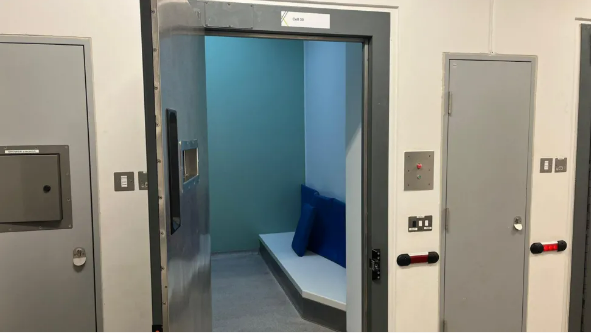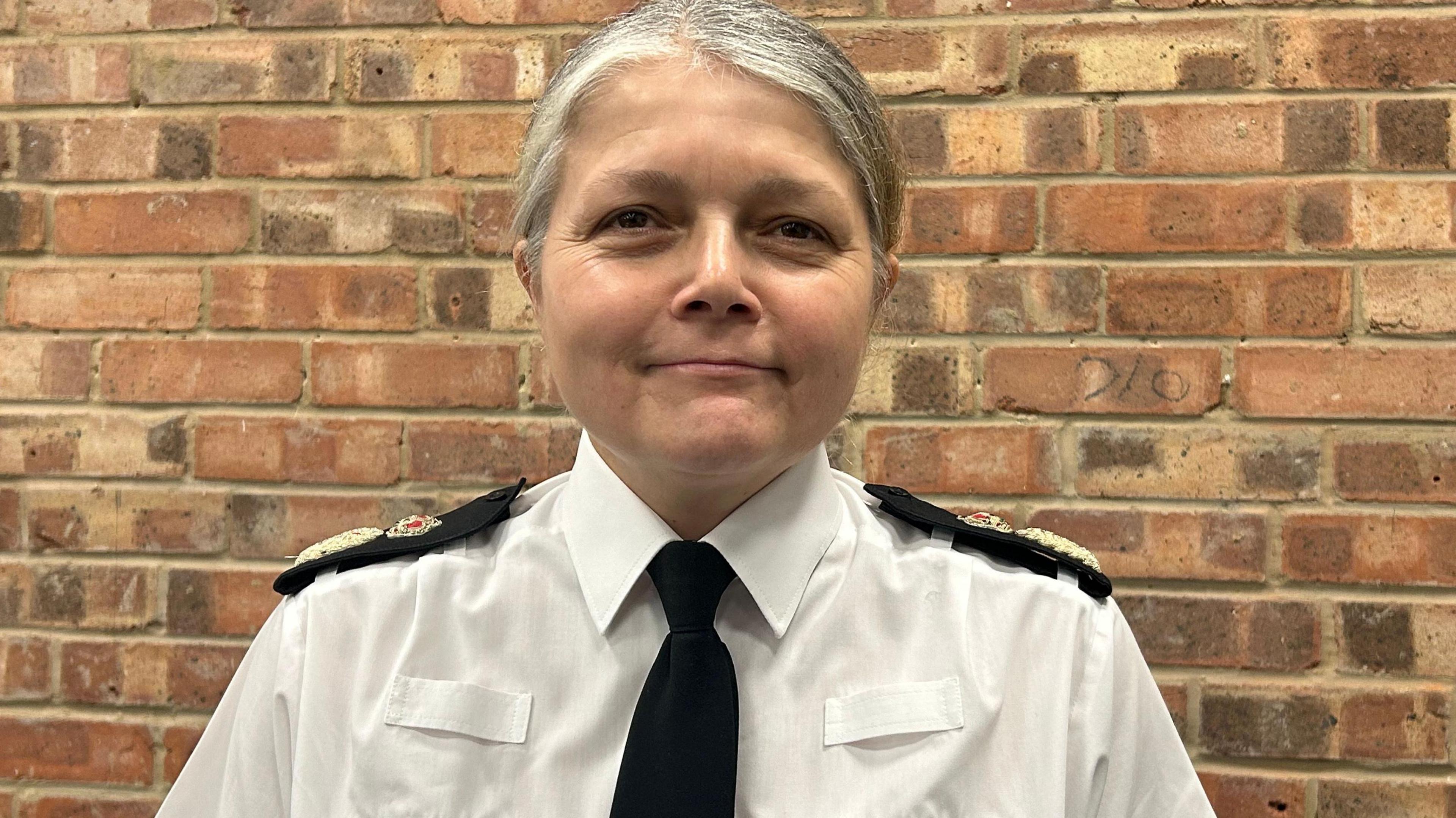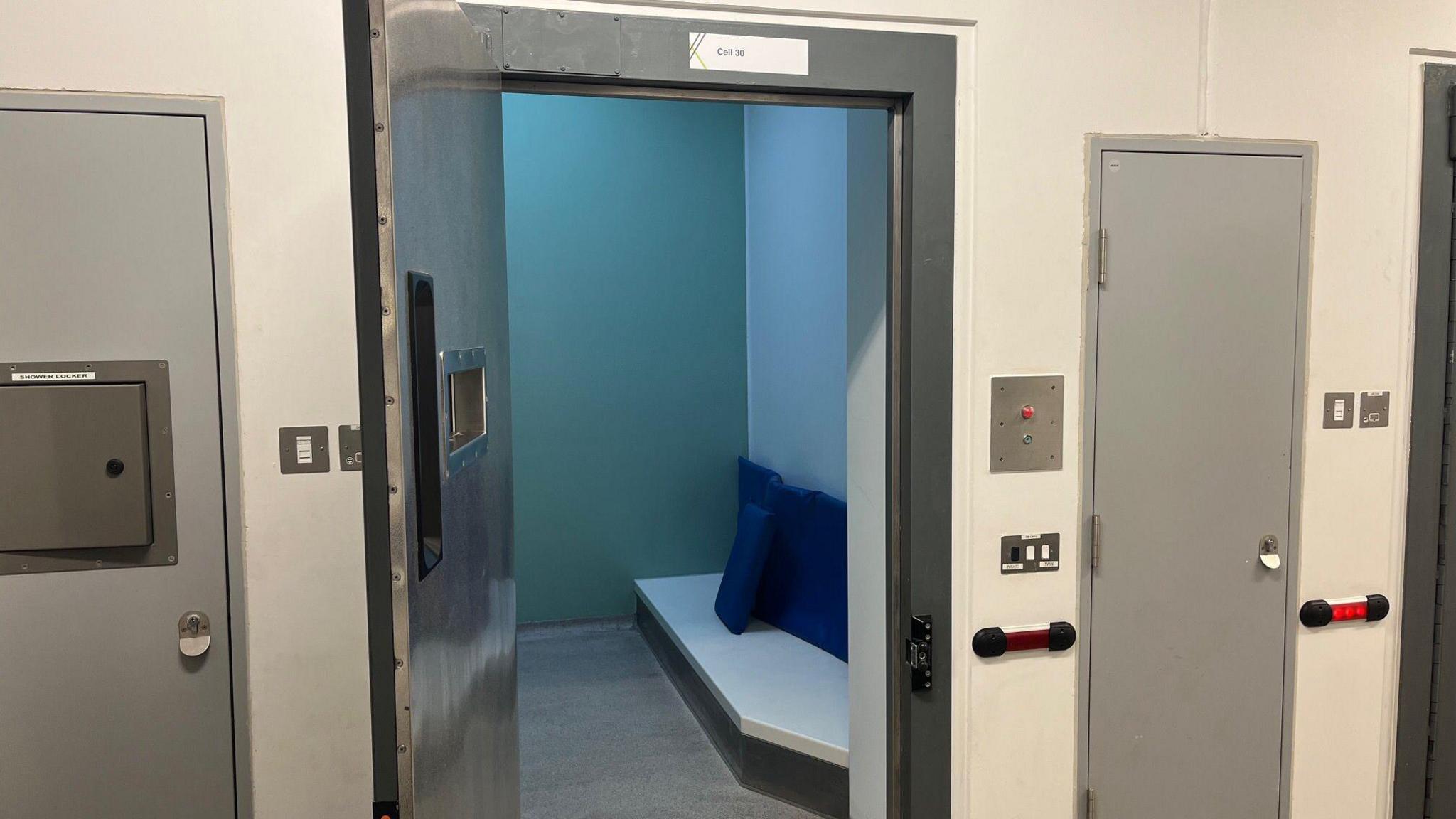Custody checks treble after inspector's concerns

Avon and Somerset Police was told it must improve a number of areas around the risk to detainees
- Published
The number of checks on intoxicated detainees in custody has trebled after concerns they were "at risk of self-harm".
Inspectors previously said people held in custody by Avon and Somerset Police were sometimes left naked in cells after their clothing was removed.
Inspectors from His Majesty’s Inspectorate of Constabulary and Fire & Rescue Services urged custody officers to carry out more frequent checks on detainees in a report.
On 17 July the force's chief constable Sarah Crew said extra checks were "immediately put in place" after the report.
Inspectors also said they still have concerns about high levels of use of PAVA incapacitant spray, which is similar to pepper spray, in confined cells and corridors.
Ms Crew said the force has already changed its practices in response to the inspection, to make sure officers keep people safe in custody, the Local Democracy Reporting Service (LDRS) said.
She was questioned by the region's police and crime commissioner Clare Moody at the meeting.

Chief Constable Sarah Crew said the force has made changes in response to the inspection
Ms Crew said: “We had one cause for concern, which requires immediate attention, and 10 areas for improvement which need attention over time to address.
“Two things that were immediately put in place, when the inspectors were still here, were around the level of observations we give people when they’re intoxicated — how regularly we go in, rouse them, check that they’re OK and leave them.
"We’ve trebled the number of times we do that."
Avon and Somerset has 36 custody cells in Bridgwater, 48 cells in Keynsham and 48 cells in Patchway.
The force made almost 20,000 arrests last year, so custody centres are always busy.
'Fairness is essential'
Inspectors had also said in the report, published in May, that officers do not protect detainees' dignity well enough when force is used to remove clothes from those at risk of self-harm.
Ms Moody said: “While the majority of people will not have experienced police custody first-hand, it does mean temporarily depriving them of their freedom.
"This is one of the strongest powers that the police have, so when somebody is in custody it’s essential that they’re treated fairly, and with dignity and respect.”
Elsewhere, the force was urged to allocate a female officer to oversee the care and welfare of girls in custody, and to record the ethnicity of every detainee.
Inspectors also said custody staff show a “caring attitude”, keep centres well-maintained and clean, and are patient with violent and volatile detainees.
Follow BBC Bristol on Facebook, external, X, external and Instagram, external. Send your story ideas to us on email or via WhatsApp on 0800 313 4630.
- Published16 May 2024
